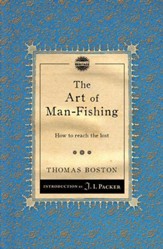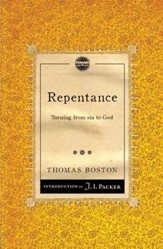
Quotes by Thomas Boston
God hath decreed the end, so He hath decreed the means that are proper for attaining that end; so that these two must not be separated.
Body to the soul: “O my soul, have we got together again after so long a separation? Have you come back to your old habitation, never more to leave? O joyful meeting! How unlike our present state is to what our condition was, when a separation was made between us at death! Now is our mourning turned into joy. The light and gladness sown before are now sprung up. Blessed be the day in which I was united to you, Soul, whose chief care was to get ‘Christ in us the hope of glory,’ and to make me a temple for his Holy Spirit. O blessed Soul, which in the time of our pilgrimage kept your eye to the land then afar off, but now near at hand! You took me into secret places, and there made me to bow these knees before the Lord, that I might bear a part in our humiliation before Him. And now is the time that I am lifted up. You employed this tongue in confessions, petitions and thanksgivings, which now on shall be employed in praising forevermore. You made these sometimes weeping eyes sow that seed of tears, now sprung up in joy that shall never end. I was happily beaten down by you and kept in subjection, while others pampered their flesh and made their bellies their gods, to their own destruction. But now I gloriously arise, to take my place in the mansions of glory, while they are dragged out of their graves to be cast into fiery flames. Now, my Soul, you shall complain no more of a sick and painful body, you shall be no more clogged up with weak and weary flesh. I shall now keep pace with you in the praises of our God forevermore.”
Our election is not written in particular in the word of God; but our duty is plainly set down there. If men conscientiously perform their duty, this is the way to come to the knowledge of their election. Men therefore should not question whether they be elected or not, but first believe on Christ, and endeavor diligently to work out their own salvation; and if their works be good, and their obedience true, thereby they will come to a certain knowledge that they were elected and set apart to everlasting life.
They that would keep themselves pure must have their bodies in subjection, and that may require, in some cases, a holy violence.
For as the sun darts its beams upon a dunghill, and yet is no way defiled by it; so God decrees the permission of sin…yet is not the author of sin.
Affliction doth not rise out of the dust or come to men by chance; but it is the Lord that sends it, and we should own and reverence His hand in it.
In our redemption by Christ we have the fullest, clearest, and most delightful manifestation of the glory of God that ever was or shall be in this life. All the declarations and manifestations that we have of His glory in the works of creation and common providence, are but dim and obscure in comparison with what is here. Indeed the glory of His wisdom, power, and goodness, is clearly manifested in the works of creation. But the glory of His mercy and love had lain under an eternal eclipse without a Redeemer.
See here the evil of murmuring and complaining at our lot in the world. How apt are ye to quarrel with God, as if He were in the wrong when His dealings with you are not according to your own desires and wishes? You demand a reason, and call God to an account, Why am I thus? Why so much afflicted and distressed? Why so long afflicted? And why such an affliction rather than another? Why am I so poor and another so rich? Thus your hearts rise up against God. But you should remember that this is to defame the counsels of infinite wisdom, as if God had not ordered your affairs wisely enough in His eternal counsel.
When ye murmur and repine under cross and afflictive dispensations, this is a presuming to instruct God how to deal with you, and to reprove Him as if He were in the wrong. Yea, there is a kind of implicit blasphemy in it, as if you had more wisdom and justice to dispose of your lot, and to carve out your own portion in the world. This is upon the matter the language of such a disposition, Had I been on God’s counsel, I had ordered this matter better; things had not been with me as now they are. O presume not to correct the infinite wisdom of God, seeing He has decreed all things most wisely and judiciously.
It is our duty to look to God’s commands, and not to His decrees; to our own duty, and not to His purposes. The decrees of God are a vast ocean, into which many possibly have curiously pried to their own horror and despair; but few or none have ever pried into them to their own profit and satisfaction.
That all sinful actions fall under the divine decree. Though sin itself flows from transgressing the law, yet the futurition of it is from the decree of God. No such thing could ever have been in the world, if it had not been determined by the eternal counsel of Heaven for a holy and just end. This is plainly asserted by the apostle Peter, with respect to the greatest villainy that was ever committed on the earth, namely, the death and sufferings of the Lord Jesus Christ, at the hands of sinful men (Ac. 2:23; 4:27-28)… There was never such an atrocious crime or higher act of wickedness committed, than the murdering of the Lord of glory. And yet it appears from these texts of Scripture, that, in this bloody and horrid scene, wicked men did no more than God’s hand and counsel determined before to be done.
The properties of God’s decrees:
1. They are eternal. God makes no decrees in time, but they were all from eternity. If the divine decrees were not eternal, God would not be most perfect and unchangeable, but, like weak man, should take new counsels, and would be unable to tell everything that were to come to pass (Eph. 1:4).
2. They are most wise. God cannot properly deliberate or take counsel, as men do; for He sees all things together and at once. Nothing is determined that could have been better determined (Rom. 11:33).
3. They are free. [They depend] on no other, but all flowing from the mere pleasure of His own will. He has made no decrees suspended on any condition without Himself (Rom. 11:34).
4. They are unchangeable. God’s decrees are constant; and He by no means alters His purpose, as men do (Psm. 33:1).
5. They are most holy and pure (1 Jn. 1:5).
6. They are effectual. Whatsoever God decrees comes to pass infallibly (Isa. 46.10).
Consider the end of God’s decrees – and this is no other than His own glory. Every rational agent acts for an end; and God being the most perfect agent, and His glory the highest end, there can be no doubt but all His decrees are directed to that end. “For to Him are all things” (Rom. 11.36).
Whoever be the instruments of any good to us, of whatever sort, we must look above them, and eye the hand and counsel of God in it, which is the first spring, and be duly thankful to God for it. And whatever evil of crosses or afflictions befalls us, we must look above the instruments of it to God.
Has God decreed all things that come to pass? Then there is nothing that falls out by chance, nor are we to ascribe what we meet with either to good or ill luck and fortune. There are many events in the world which men look upon as mere accidents, yet all these come by the counsel and appointment of Heaven.
It is great folly to cast your sins upon Satan who tempted you, or upon your neighbor who provoked you; but it is a far greater sin, nay horrid blasphemy, to cast it upon God himself. A greater affront than this cannot be offered to the infinite holiness of God.
In vain will ye fast, and pretend to be humbled for our sins, and make confession of them if our love of sin be not turned into hatred; our liking of it into loathing; and our cleaving to it, into a longing to be rid of it; with full purpose to resist the motions of it in our heart, and the outbreakings thereof in our life; and if we turn not unto God as our rightful Lord and Master, and return to our duty again.
Again, the glory of one attribute is more seen in one work than in another: in some things there is more of His goodness, in other things more of His wisdom is seen, and in others more of His power. But in the work of redemption all His perfections and excellencies shine forth in their greatest glory.
Let the people of God comfort themselves in all cases by this doctrine of the divine decrees; and, amidst whatever befalls them, rest quietly and submissively in the bosom of God, considering that whatever comes or can come to pass, proceeds from the decree of their gracious friend and reconciled Father, who knows what is best for them, and will make all things work together for their good. O what a sweet and pleasant life would ye have under the heaviest pressures of affliction, and what heavenly serenity and tranquility of mind would you enjoy, would you cheerfully acquiesce in the good will and pleasure of God, and embrace every dispensation, how sharp soever it may be, because it is determined and appointed for you by the eternal counsel of His will!
The great, and glorious end for which God decreed the after-being of sin, is His own glory: and the ends subordinate thereunto are not a few. Particularly, God decreed the futurition of sin:
1. That He might have occasion of glorifying His infinite wisdom, love, and grace in the redemption and salvation of a company of lost sinners through the death and sufferings of His own dear Son.
2. That His patience and long suffering in bearing with and forbearing sinners, might be magnified, admired, and adored.
3. That He might be honoured and glorified by the faith and repentance of His people, and their walking humbly with Him.
4. That His justice might be illustriously displayed and glorified in the eternal damnation of reprobate sinners for their own sins and abominations, sin being the cause of their damnation, though not of their reprobation.



